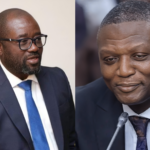The geopolitical landscape is shifting as the Trump administration embarks on talks with Russia, excluding Ukraine and Europe from the negotiations. Saudi Arabia will play a mediating role in these discussions, with key figures such as US Secretary of State Marco Rubio, Middle East special envoy Steve Witkoff, and National Security Adviser Mike Waltz participating. This move marks a significant departure from the previous US policy towards Europe and has left European leaders scrambling to respond.
Ukrainian President Volodymyr Zelenskyy has expressed his opposition to negotiations that exclude Ukraine, stating that his country would “never accept deals made behind our backs without our involvement.” However, with the US showing a willingness to prioritize its own interests over European security, Zelenskyy’s options are limited. The Trump administration has emphasized the need for Europe to take a more active role in its defense, with Vice-President JD Vance calling for European nations to increase their contributions to Ukraine’s defense.
US Defence Secretary Pete Hegseth has also signaled a shift in US policy towards Ukraine, stating that it is “unrealistic” to expect the country to return to its pre-2014 borders and downplaying the prospect of Ukraine joining NATO. These developments have created uncertainty in Europe, with leaders in Paris convening to formulate a response to what UK leader Keir Starmer has described as a “once in a generation” moment for national security.
As the US reevaluates its priorities and focuses on the Indo-Pacific region, European leaders must adapt to the changing dynamics of the transatlantic partnership. The Trump administration’s emphasis on a transactional approach to international relations has put pressure on European nations to increase their defense spending and take more responsibility for their security. The blunt rhetoric coming from Washington and the unpredictability of Trump’s outreach to Russian President Vladimir Putin have left European leaders questioning the future of transatlantic relations.
In light of these developments, European leaders must work towards maintaining their influence in the US-Europe partnership and ensuring the security of Ukraine post-ceasefire. The disruption caused by Trump’s policies has left Europe facing uncertainty about its own security and the future of transatlantic relations. As the global order undergoes a transformation, Europe must navigate these challenges and assert its role in shaping the future of international politics.








